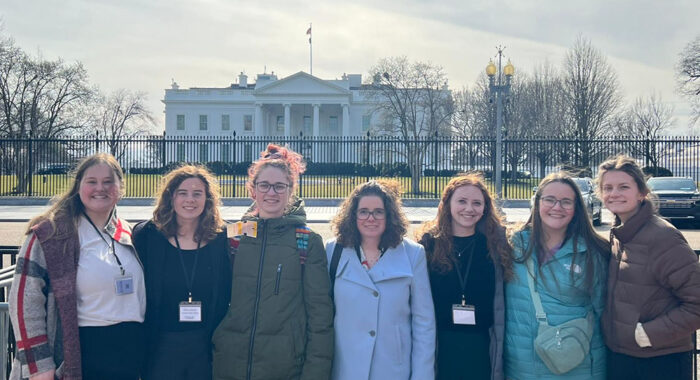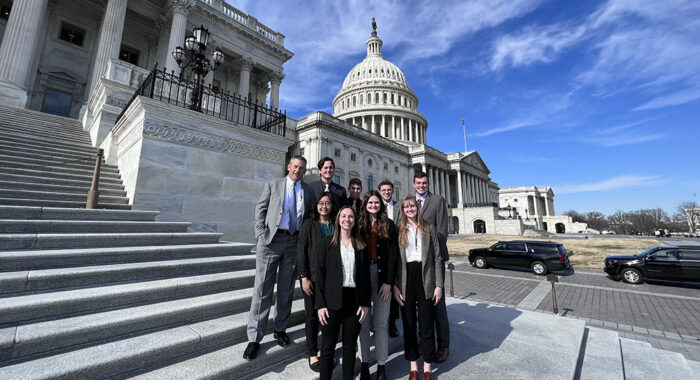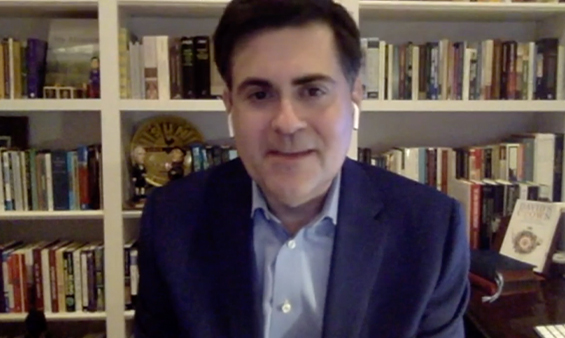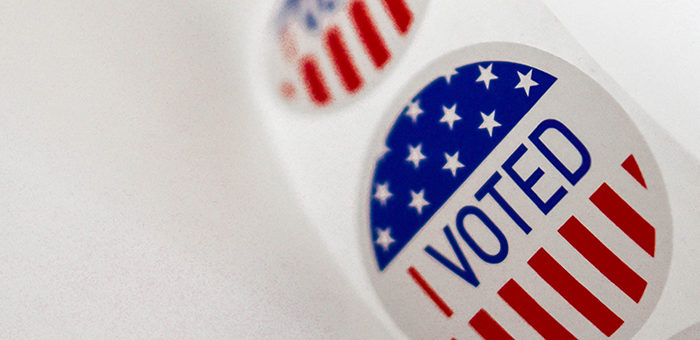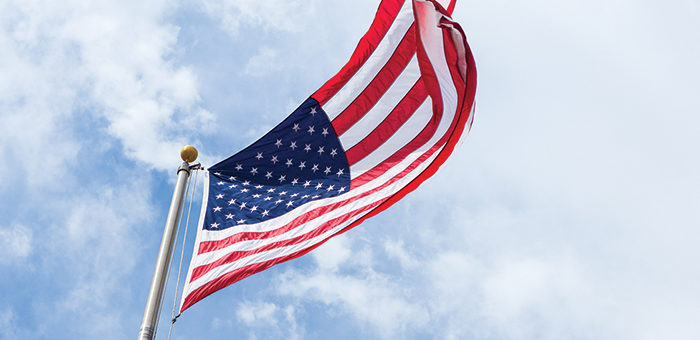From the humble beginnings of its 1942 founding, the National Association of Evangelicals has grown into a respected, unifying voice for evangelicals in our nation’s capital.
An early concern was protecting access to the airwaves for evangelical radio broadcasters. Delegates to the annual conventions also approved resolutions on public policy issues ranging from confronting communism to promoting racial justice to banning smoking on airplanes.
In 1953, newly elected President Dwight D. Eisenhower met with NAE leaders in the White House to discuss the need for national moral and spiritual renewal. The Korean War was drawing to a close, but the struggle with communism abroad and the sexual revolution at home would continue for decades. Most presidents since then have either spoken at NAE events or met with NAE leaders.
For many years the NAE was represented by Clyde Taylor, Sr., a former Christian and Missionary Alliance missionary to Peru. Taylor’s experience proved valuable as he helped many recently formed evangelical missionary societies negotiate passport and visa issues with the State Department and foreign embassies.
While NAE members appreciated the practical assistance with government representation, Billy Melvin, who served as NAE executive director from 1967–1995, recalls that some evangelicals frowned upon political involvement. This changed over time.
After years of patient work in educating legislators, forming coalitions and mobilizing constituent support, the NAE helped get two important bills through Congress in one year: the Equal Access Act of 1984 (EAA) and Church Audit Procedures Act (CAPA).
The EAA guarantees the rights of students to meet on high school campuses for religious purposes, where the school allows non-curricular secular groups similar privileges. The Christian Legal Society’s Kim Colby said, “The NAE worked tirelessly for the EAA. The EAA is why public secondary students can read the Bible, pray and share their religious beliefs on public school property.”
That same year, the NAE pushed Congress to pass the CAPA, which protects churches from unduly intrusive audits by the IRS, as part of broader tax reform legislation.
In 1990, religious freedom advocates were shocked when the Supreme Court declared that the Constitution does not protect religious believers from a neutral law of general applicability that hinders the free exercise of their religion.
The NAE worked with a broad coalition to pass the Religious Freedom Restoration Act (RFRA). When the Supreme Court ruled that RFRA did not apply to state and local governments, the NAE advocated for the Religious Land Use and Institutionalized Persons Act (RLUIPA), which addresses religious discrimination by prison officials and local zoning boards.
Another landmark law with NAE fingerprints is the International Religious Freedom Act.
Successful advocacy for domestic and international religious freedom is a consistent thread throughout the NAE’s history. “When it comes to advancing religious liberty for all persons of any faith over the past 25 years, the NAE can only be described as indispensable,” said Steve McFarland, legal counsel for World Vision.
The NAE’s advocacy agenda over the years has been broad. President Ronald Reagan’s famous “Evil Empire” speech was delivered at the NAE’s 1983 Orlando convention. A major NAE initiative on Peace, Freedom and Security Studies — conducted as the Cold War raged — provided sophisticated and balanced analysis that critiqued distortions of both right and left.
Other NAE advocacy focused on human rights, contributing to passage of the North Korea Human Rights Act, the Sudan Peace Act, the Prison Rape Elimination Act, and the Trafficking Victims Protection Act.
The NAE also supported pro-life legislation including the Hyde and Weldon amendments and the Partial Birth Abortion Act. In recent years, major NAE activity has built significant evangelical support for immigration reform, criminal justice reform and ending predatory lending abuses. The NAE’s approach is summarized in “For the Health of the Nation: An Evangelical Call to Civic Responsibility.”
This article originally appeared in Evangelicals magazine.
Galen Carey, NAE vice president of government relations, is responsible for representing the NAE before Congress, the White House and the courts. He works to advance the approach and principles of the NAE document, “For the Health of the Nation.” He is also co-author with Leith Anderson of “Faith in the Voting Booth.” Before joining the NAE staff, Carey was a longtime employee of World Relief, the relief and development arm of the NAE, serving in Croatia, Mozambique, Kenya, Indonesia and Burundi. He received an M.Div. from Trinity Evangelical Divinity School, and a Doctor of Ministry from McCormick Theological Seminary.




 View All Articles
View All Articles 







